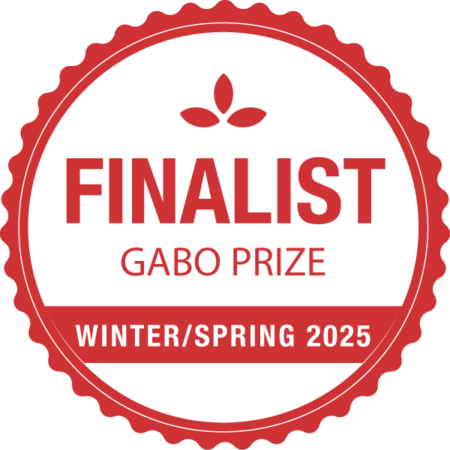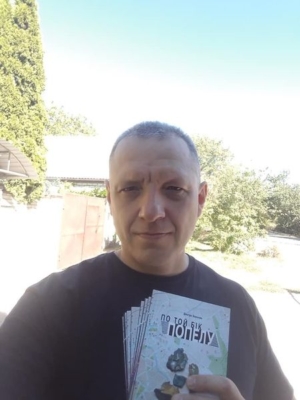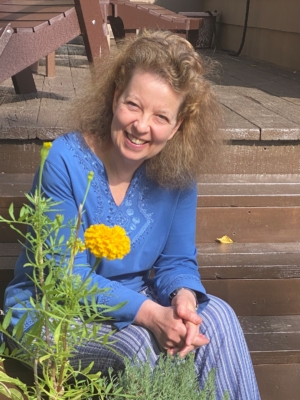Untitled (you’ve died so many times…)
you’ve died so many times in your dreams
that surely you can manage it once while awake.
the soul abandons the body a moment beforehand,
rising over what used to be home,
the clumps of willow, the fishing schooner, the hot current
spirals as it carries you off,
it seems you are flying, a gnat stuck in glue,
your arms flung out—now they’re branching shoots
of glowing tubes.
now you are a fantastical being,
you’ve got sixteen eyes on your face,
upturned like a sunflower,
but there’s no one to see you,
the retriever, concussed and terrified,
managed to leap over the fence,
there’s a honeycomb of grainy light, and this noise, ringing.
bees, bees everywhere, your soles still brush
the roofs of the charred automobiles,
but it’s weird—there are no traces of soot,
and where there used to be legs, now there are
scissors of immobility.
stalks of black-green memories are seaweed
clinging to your face, while sticky clay
glues shut your mouth, the envelope
of nevermore.
you want to say this—about yourself, without yourself,
but pass through words like a ghost’s hand
through a bright-red can of coca-cola.
you are pressed to the thirteenth-floor balcony,
to the support that remains
after the rocket blast—what for?
that’s where she used to live, the second love
of your entire life, she—somnolent, big-eyed—
looked like a startled baby stork,
keep going, keep vanishing,
your back to the river, while the devil hasn’t yet crowed,
while the artillerist hasn’t finished his cigarette,
and the heavy, white sky is still crumbling—
the belly of a dolphin riddled by rockets,
tanks, dark outlines of enormous rooks flock
in the potato field by the river, speeding across the bridge,
passenger cars rumble, squealing
like little first-graders,
an angel holds a broken arm in his hands,
it’s the limb of a strange tree that used to be you
once, but memory drains faster than blood,
your unshaven cheek pressed to the stanchion,
you’re an eye that has swallowed the river and the factory across the river.
there’s no fear; there’s fear, terror, laughter,
you knew it all through your life and a bit longer.
there will be a time
all your pictures will vanish in fire
and come out on the far side of the ashes.
*** (ты столько раз умирал во сне)
ты столько раз умирал во сне,
что один раз уж точно выдержишь наяву.
душа покидает тело за секунду до.
поднимается над тем, что было домом,
тальник, рыбацкая шхуна, тебя уносит по спирали
горячее течение,
тебе кажется, что ты летишь, мошка в клею,
раскинул руки — теперь это отростки
светящихся трубок.
теперь ты — фантастическое существо
с шестнадцатью глазами на лице,
задран как подсолнух,
но тебя никто не видит,
и контуженный сеттер от страха
перепрыгнул забор,
соты зернистого света, и этот шум, звон.
пчелы, пчелы, ты еще задеваешь ступнями
крыши обгоревших автомобилей,
но удивительно — нет следов сажи,
и там, где были ноги теперь —
ножницы неподвижности.
стебли черно-зеленых воспоминаний точно водоросли
залепляют твое лицо, а вязкая глина
склеивает рот, конверт,
уже больше никогда.
ты хочешь это сказать — про себя, вне себя,
но проходишь сквозь слово — как рука призрака
сквозь ярко-красную жестяную банку кока-колы,
тебя прижимает к балкону
тринадцатого этажа, к опоре,
что осталась после взрыва ракеты, зачем?
здесь жила она, вторая любовь
всей твоей жизни — сонная, большеглазая,
похожая на удивленного птенца аиста,
давай, исчезай,
спиной к реке, пока дьявол не прокукарекал,
а артиллерист не докурил,
и дробится тяжелое белое небо,
живот дельфина, прошито снарядами,
танками, темными силуэтами громадных грачей
на картофельном поле у реки, по мосту
с грохотом несутся легковушки, визжат
как первоклашки,
в руках у ангела сломанная рука,
ветка странного дерева, ты был им когда-то
однажды, но память вытекает быстрей, чем кровь,
прижат к свае небритой щекой,
глаз, проглотивший реку и завод за рекой.
не страшно, страшно, жутко, смешно,
ты знал это всю жизнь и немного дольше.
однажды
все твои картины исчезнут в огне
и выйдут по ту сторону пепла.
Translator’s Statement
Dmitry Blizniuk is a native and lifetime resident of Kharkiv, a Ukrainian city currently under attack by the Russian army. Like many Kharkivites, Blizniuk is a citizen of Ukraine who is fluent in both the Russian and Ukrainian languages. Until the war, Blizniuk wrote poetry in Russian. Since the start of the war, Blizniuk has expanded, rather than contracted, the linguistic span of his poetry. He has continued to be a prolific Russian-language poet, refusing to cede a language and literature that he has inhabited since birth to an aggressor who seeks to take over the cultural landscape, in addition to the land. He has also started to translate his own poetry into the Ukrainian language.
I am captivated by Blizniuk’s poetry—both his pre-war and his wartime work. His writing surges with a passion for life. It is imaginative and playful in the way it pays attention to every sensory detail, even when its subject is something as dark as the fear of imminent, violent death. In the poem “(Untitled) you’ve died so many times…,” as the poet faces the possibility of dying in a rocket attack, he goes through a wild ride of contradictory emotions before he settles into confidence that his creativity will transcend his own death.
One of the challenges of translating Blizniuk’s poetry is conveying the rhythmic energy of his texts. As I translate, I keep reading aloud the original and my translation until they have the same effect on my consciousness, my voice, and my breathing.
Dmitry Blizniuk is a poet from Kharkiv, Ukraine. His recent poems have appeared in 128 LIT, American Chordata, The London Magazine, Rattle, Another Chicago Magazine, Eurolitkrant, Poet Lore, New Mexico Review, The Ilanot Review, National Translation Month, EastWest Literary Forum, NDQ, The Pinch, Tochka.Zreniya (View.Point), and many other publications. English translations of his poems have been nominated for The Pushcart Prize, have won the RHINO 2022 Translation Prize, and have been selected by Deep Vellum for the 2025 Best Literary Translations Anthology. He is the author of several collections of poetry in Russian. The Red Forest is a book of his poetry published by Fowlpox Press in 2018 (Canada). По Той Бік Попелу (On the Other Side of the Ashes) is a book of his poetry self-translated into Ukrainian and published by Herda in 2024 (Dnipro, Ukraine).
Yana Kane came to the United States as a refugee from the USSR. She holds a BSE degree in Electrical Engineering and Computer Science from Princeton University and a PhD in Statistics from Cornell University. She is pursuing an MFA in Creative Writing at Fairleigh Dickinson University, where she has been awarded the Baumeister Scholarship.
Her recent and upcoming English-language publications include 128 LIT, Allium, American Chordata, Another Chicago Magazine, Arkansas International, EastWest Literary Forum, The Los Angeles Review, Interpret Magazine, One Art, Platform Review, Rattle, RHINO Poetry, World Literature Today, Точка.Зрения/View.Point and Слово/Word. Her bilingual poetry book, Kingfisher/Зимородок, was published in 2020. Her original poetry, and her translations, have appeared in Dislocation, an anthology of poetry in translation published in 2024 by Slavica Publishers, a division of Indiana University.
View.Point recognized her poetry translations as among the Best of 2022. She won the 2024 RHINO Poetry Translation Prize and was selected for the 2025 Deep Vellum Best Literary Translations Anthology.
She is grateful to Bruce Esrig for editing her English-language texts.







